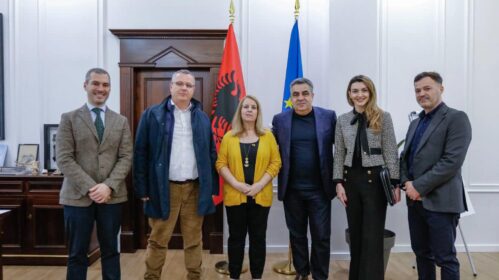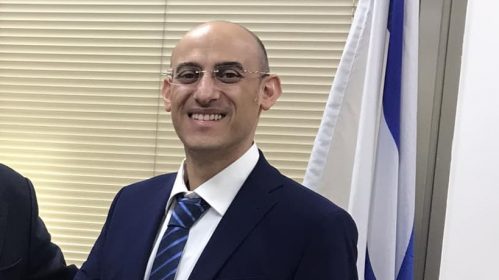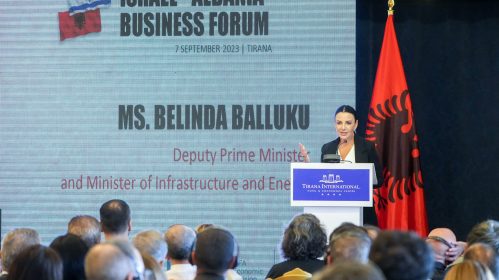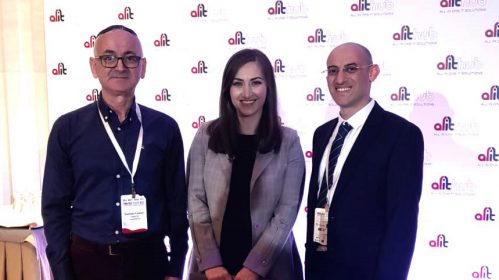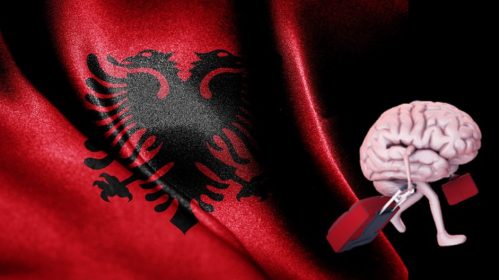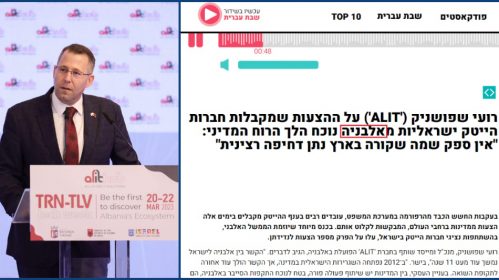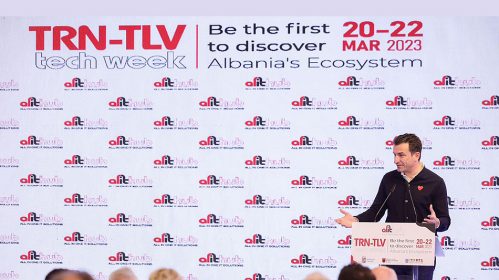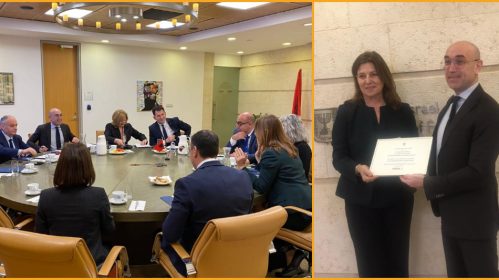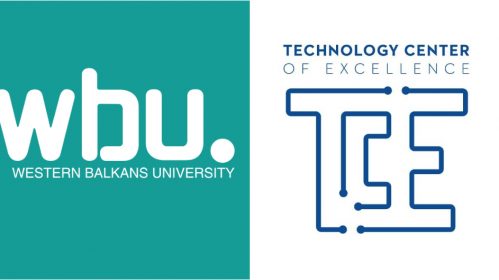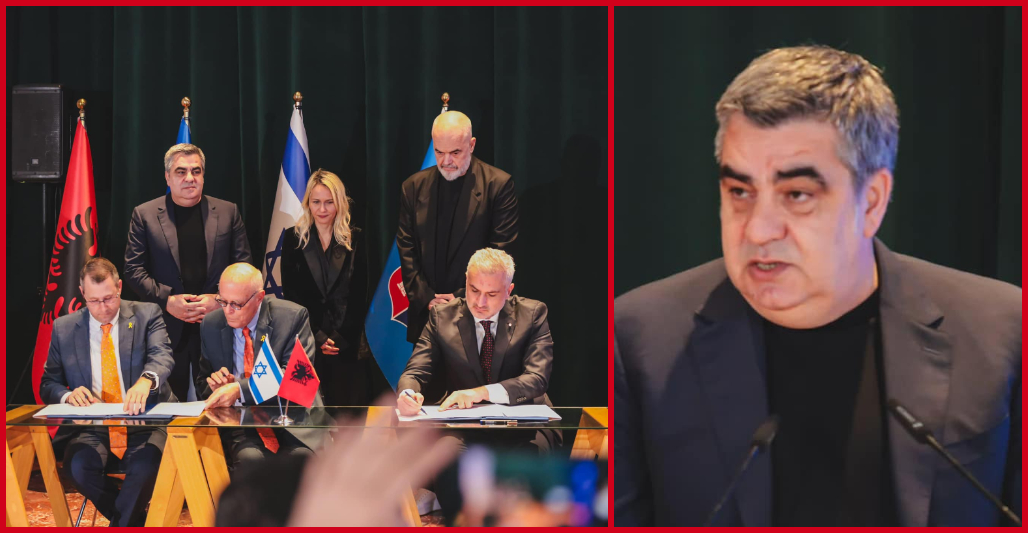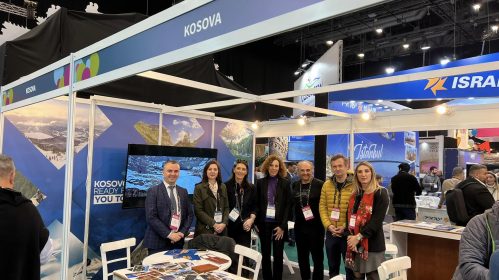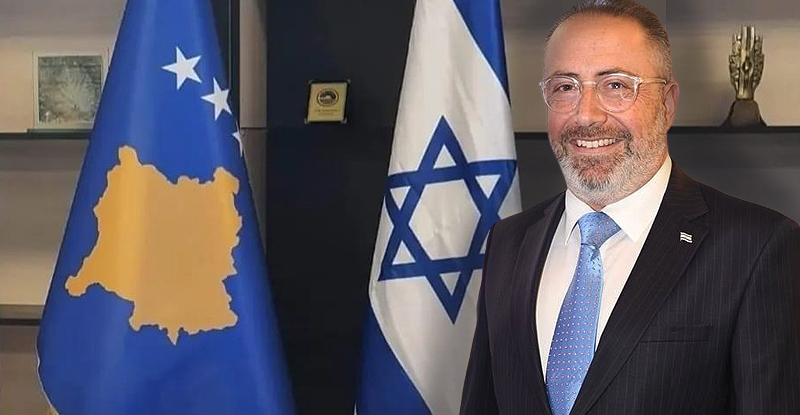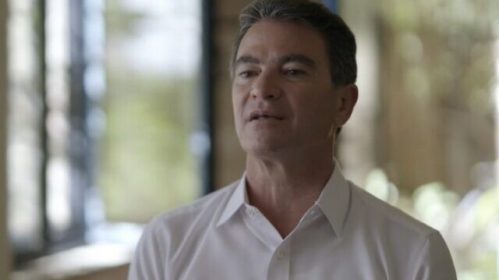
On the crossroads between Serbia and Kosovo
Today, Serbia is looking for a family and Kosovo is looking for recognition, and Israel is precisely situated on the intersection between the two.

Less than a month since the declaration of the Abraham Accord (August 13) – the normalization of relations between the United Arab Emirates and Israel – on Friday we happily received even more diplomatic tidings: Serbia and Kosovo are expected to open their embassies in Jerusalem, alongside the embassies of the United States and Guatemala.
This is history in the making: Serbia will be the first European country to do so and Kosovo will be the first Muslim-majority country. And similar to the UAE – Donald Trump, the president of the United States, is the patron. Do you remember the diplomatic tsunami we were promised by Ehud Barak in 2011? Perhaps what he actually meant was waves of love?
Trump’s tweet on Friday was optimistic and encouraging: “Another great day for peace with Middle East – Muslim-majority Kosovo and Israel have agreed to normalize ties and establish diplomatic relations. Well-done! More Islamic and Arab nations will follow soon!”
Another great day for peace with Middle East – Muslim-majority Kosovo and Israel have agreed to normalize ties and establish diplomatic relations. Well-done! More Islamic and Arab nations will follow soon!
— Donald J. Trump (@realDonaldTrump) September 4, 2020
Something good is happening in the Middle East under Trump’s auspices and in the Netanyahu era. We cannot forget, however, that there are elections in the US in November. A Trump victory is becoming extremely significant. The Trump-Netanyahu duo has already realized a great deal of its potential, but there is still much more to accomplish. Netanyahu’s speech before Congress against the Iran nuclear deal, and Trump’s subsequent withdrawal from it, actually enhanced the two allies’ ability to maneuver diplomatically in the Middle East – the opposite to the line of thinking espoused by Barack Obama and his cohort of experts/pundits.
Despite the proximity between the UAE deal and Friday’s announcements of the embassy openings and Israeli recognition of Kosovo’s independence, the two stories are quite different from one another.
The new friendship with the UAE, under the international spotlight, points to a new Middle East reality that other countries, such as Bahrain, Oman and Sudan are expected to join once Saudi Arabia gives them – and, god willing, eventually itself – the greenlight.
The story of Serbia and Kosovo is far more complicated, with considerable international implications. Although Kosovo is a new country (it declared independence in 2008), it is not a member of the United Nations due to a Russian veto, and is only recognized by some 100 UN member states and only 23 European Union member states. Spain, Greece, Cyprus, Romania and Slovakia refuse to recognize Kosovo due to concerns over separatists in their own countries. This was also the Israeli argument in refusing to recognize Kosovo in 2008. Israeli policy was to play on both sides of the fence: Don’t “reject” but also don’t recognize independence. It stands to reason that Israel considered the consequences of Kosovo’s unilateral declaration of independence, which could have inspired the leaders of the Palestinian Authority. In the meantime, perhaps the behavior of PA leaders has become predictable and Israel is willing to take the risk, or the schism between the PA and Gaza simply makes it impossible for the Palestinians to issue such a declaration anyway.
Back to the Balkans. Something is happening in our changing world. If Serbia and Kosovo can sign an economic pact after two days of talks in Washington, then things really are moving in the world – in a positive direction in fact. Flashback to 1998-99: Kosovo with its majority Albanian-Muslim population, is burning. The entire world feared it would be invaded by the Serbian army. Serbian President Slobodan Milosevic set his sights on destroying the Albanian resistance. NATO and the US, fearing there would be massacres and atrocities, launched a 78-day campaign in which the Serbian capital of Belgrade was bombed from the sky. I remember covering that war, shuttling between the various countries involved in the war. The Serbs’ hatred and disgust toward the Kosovars ran deep. The idea of an independent Kosovo was unfathomable because the Serbs view Kosovo as the cradle of Serbian nationalism due to its history. In this context, one of the more prominent historical events was the “Battle of Kosovo” in June of 1389 between Serbian leader, Prince Lazar, and the armies of the Ottoman Empire. Although the Serbs were defeated, that battle in Kosovo gave birth to Serbian national identity. On a personal level, I was conflicted. Both the Serbs and the Albanians helped the Jews flee the Nazis in the Second World War.
Hence my great joy upon witnessing Serbian President Aleksandar Vucic and Kosovo’s Prime Minister Avdullah Hoti sign an economic agreement in Washington. Although they still don’t recognize one another, it’s safe to assume this is the direction. Yet with the Serbs conditioning the relocation of their embassy to Jerusalem by July 2021 on Israel “respecting” Serbia, we are left to wonder: Does this mean Israel must withhold recognition of Kosovo’s independence? Will this put Israel in a diplomatic quandary? It’s hard to believe the sides sat down at the White House and didn’t understand the implications of the deal they were signing. It appears, however, that Trump’s presence is vital to the implementation of the accord.
Serbia is an important country, which has sought to find its footing in the international arena ever since the Kosovo War. Unlike Croatia and Slovenia, it hasn’t become a member of the EU. Even in the past, under the rule of Tito, it would continue to take an independent course in world politics, shunning the influence of both west and east. The Yugoslav Army maintained two official defense plans, one against a NATO invasion and one against a Warsaw Pact invasion. Today, however, Serbia is looking for a family and Kosovo is looking for recognition – and a strong Israel is precisely situated on the intersection between the two.
In January of 2017, I was invited to Washington to attend all of Trump’s inauguration events, which lasted a week. It was a thrill. The first event I attended was the president-elect’s meeting with diplomatic staff in Washington. I waited patiently for my turn. A very elegant ambassador was ahead of me in line. She turned to the president and told him that she very much hoped he would visit her country. She was the ambassador from Kosovo, Vlora Çitaku, who was living in the capital of Pristina during the war. I introduced myself to her and she told me then that we needed to be friends. I couldn’t have imagined that before the end of Trump’s first term she would be a main player and that Israel would be involved. In days such as these, in which so many things are changing, we can only wait for the next surprise. It’s not a matter of if, but when. Waves of love.





